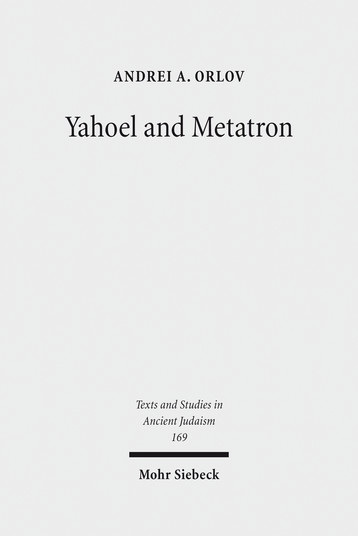Text
אמר ר׳ ישמעאל אמר לי מטטרון מלאך שר הפנים הדר מרום כל. שבעה הם שרים הגדולים נאים נוראים נפלאים נכבדים שהם ממונים בשבעה רקיעים ואלו הן. מיכאל גבריאל שתקיאל שחקיאל ברדיאל ברקיאל סדריאל וכולם שרי צבא רקיע הן ועם* כל אחד מהם ארבע מאות ותשעים וששם אלפים רבבות מלאכי השרת.
מיכאל השר הגדול ממונה על רקיע שביעי של** עליון שבערבות.
גבריאל שר הצבא ממונה על רקיע הששי שבמכון.
שתקיאל שר הצבא ממונה על רקיע החמישי שבמעון.
שחקיאל שר הצבא ממונה על הרקיע הרביעי שבזבול.
ברדיאל שר הצבא ממונה על רקיע השלישי שבשחקים.
ברקיאל שר הצבא ממונה על רקיע השני שברום רקיע.***
סדריאל**** שר הצבא ממונה על רקיע ראשון שבוילון שבשמים.
Textual Notes: italics only found in V228; bold only in M40
*M40 has ועוד יש ל
**M40 has שהוא
*** M40 has שבווילון
****M40 has סרקיאל
Translation
R. Ishmael said, the angel Metatron, prince of the presence, splendor from on high in its entirety, said to me, “There are seven great, beautiful, terrible, excellent, distinguished princes who are stewards of the seven expanses these these are them: Michael, Gabriel, Shataqiel, Shachaqiel, Baradiel, Baraqiel, Sidriel. And each is a prince of an army of an expanse and each one of them has four thousand, nine sixty thousand myriads of serving angels.
Michael, the great prince, is steward over the seventh expanse on high that is in Arabot.
Gabriel, the prince of the army, is steward over the sixth expanse that is in Makon.
Shataqiel, prince of the army, is steward over the fifth expanse that is in Maon.
Shachaqiel, prince of the army, is steward over the fourth expanse that is in Zebul.
Baradiel, prince of the army, is steward over the third expanse that is in Shachaqim.
Baraqiel, prince of the army, is steward over the second expanse that is on high in Raqia.
Sidriel, prince of the army, is stewrd over the first expanse that is on high in the skies.
Translation Notes
Discussion
Overall, from here on out we see a shift. Before this, Metatron reveals information about himself; from here on out, Metatron reveals information about other angels. We have moved from intimate self-disclosure to other secrets of reality. I think we have moved out of the realm of Sefer Hekhalot that would resonate with a queer or trans reading. And that is fine. But if other readers have any suggestions for further reading in other Hekhalot texts on the topics of: desire, angelic trans/anthropo/phobia, transformations, etc., please offer such suggestions.


